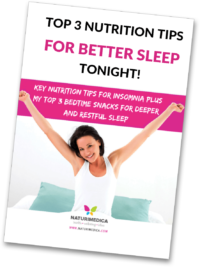I’m always searching for effective, safe and readily available sleep enhancing nutrients to test them myself as well as make effective recommendations for my clients.
In my previous post I talked about how calming minerals magnesium and calcium promote more restful and uninterrupted sleep.
In addition to magnesium and calcium, the other highly effective sleep enhancing nutrients are inositol and L-theanine, they are available for purchase from chemists, health food shops or online. Naturally, quality is always important as it’ll determine your results so choose the supplements wisely!
INOSITOL
Inositol taken before bedtime improves sleep quality for many people, helping with falling asleep and quieting the busy mind.
It also facilitates a feeling of calm, decreases anxiety, and alleviates depression and panic attacks. The supplement can be purchased without a prescription in the form of capsules or powder.
Dose guidelines
A therapeutic daily dose of inositol for better sleep is between 750–2,000 mg for adults. Higher doses are more effective for insomnia, and lower doses for difficulty falling and/or staying asleep.
Inositol is best taken 20-30 minutes before bed on a regular basis over a few months for best results.
Food sources
Citrus fruits, seeds, rock melon, brewers yeast, wheat germ, whole grains, navy beans and oats. Animal sources include eggs, and organ meats such as liver.
L-THEANINE
L-theanine is a biologically active component found in the leaves of green tea (Camellia sinensis), responsible for its relaxing properties and distinct taste. However, the small amounts of L-theanine found in tea will not have the desired calming therapeutic effect.
 Supplementation is the most efficient way to reach the therapeutic dose (see below), unfortunately most cheap supplements are low in L-theanine and thus are ineffective.
Supplementation is the most efficient way to reach the therapeutic dose (see below), unfortunately most cheap supplements are low in L-theanine and thus are ineffective.
Importantly, L-theanine will not make you drowsy, sleepy or tired when taken during the day.
Taking L-theanine during the day may actually help you be more relaxed at bedtime, and taking some before bedtime may also help you to relax and reduces anxiety so that you find it easier to get to sleep and stay asleep.
It also supports cognitive function and memory.
Dose guidelines
Studies suggest that taking between 100-400 mg/day of L-theanine may have a relaxing effect that helps with sleep quality. In a 6-week study of boys with autism, 400 mg of L-theanine (200 mg in the morning and 200 mg at dinner) was shown to significantly improve sleep quality by increasing the time spent in restful sleep.
Food sources
Green tea.
Have you tried taking these two sleep enhancing nutrients to improve your sleep? Do you have recommendations of high quality inositol or L-theanine supplements that worked for you? Share your experience with us in comments below, thank you!
FREE Sleep Guide Download
Having seen many fantastic outcomes of improved sleep in my practice, I created a short free  ‘better sleep’ guide for my clients. It comprises key practical tips based on my clinical experience and research, to give you the most important, common sense steps and actions you can do right now to get sounder and more restful sleep tonight.
‘better sleep’ guide for my clients. It comprises key practical tips based on my clinical experience and research, to give you the most important, common sense steps and actions you can do right now to get sounder and more restful sleep tonight.
This FREE sleep guide, in a form of an eBook, will provide you with the key tips and guidance to significantly improve your sleep fast, especially if you’re struggling with fatigue, adrenal fatigue, anxiety or hypoglycemia.
Download your copy of the FREE Sleep Guide here: Top 3 Nutrition Tips for Better Sleep Tonight! Key nutrition tips for insomnia plus my top 3 bedtime snacks for deeper and restful sleep
Please note that the above material is for informational and educational purposes only and is not intended as a substitute for medical advice, diagnosis, or treatment. Consult with your health practitioner or doctor for advice specific to your circumstances.
Joanna Sochan
Wholistic Health and Lifestyle Therapist
Natural and Lifestyle Therapies for Abundant Health and Wellbeing
Additional resources
- Top nutrition tips for insomnia and interrupted sleep
- How to reset sleep patterns and circadian rhythms
- Adrenal fatigue treatment: The Kalish Method in Australia
- Holy basil – a key herb for stress, anxiety, depression and fatigue
- Top 2 sleep tips for a better sleep tonight
Disclaimer: The above material is for informational and/or educational purposes only. It should not be used to self-diagnose and it is not a substitute for a medical advice, diagnosis, treatment, prescription or recommendation. All viewers of this content, especially those taking prescription or over-the-counter medications, should not make any changes in their health regimen or diet before first consulting a doctor or other qualified health provider with any questions they may have regarding a medical condition or their particular circumstances.
 Joanna Sochan is a Natural Therapist and founder of Naturimedica Holistic Wellcare. She has a passion for helping clients transform their lives by becoming healthy and well naturally. Joanna has 10+ years experience in clinical practice and has special interest in solving complex cases, functional medicine testing, gut health, sleep, fatigue and chronic pain. She guides clients through her tailored programs and eCourses as well as helping them individually (mostly online) Australia-wide. View full bio.
Joanna Sochan is a Natural Therapist and founder of Naturimedica Holistic Wellcare. She has a passion for helping clients transform their lives by becoming healthy and well naturally. Joanna has 10+ years experience in clinical practice and has special interest in solving complex cases, functional medicine testing, gut health, sleep, fatigue and chronic pain. She guides clients through her tailored programs and eCourses as well as helping them individually (mostly online) Australia-wide. View full bio.
 Print This Post
Print This Post 

thanks for this information
Hi Joanna,
thank you so much for the really insightful information. I would like to take inositol to improve my sleep. By the dosage you described, did you mean that 1000mg would be better for difficulty falling and/or staying asleep and 2000mg would be better for insomnia?
Yes, that’s right – 2g would work better for insomnia than 1g.
Cheers
Joanna
Thank you so much for the response!! :) So if I take 2g Inositol would it work „worse“ than 1g if I only have problems falling asleep and staying asleep? Or could I take 2g directly as a precaution?
Hi Joanna,
thank you so much for the reply!! It’s very helpful :)
I just have one more question to clarify. Could I also take 2g of inositol directly as a precaution or would it be less effective if I only have problems falling asleep and staying asleep? (no insomnia yet)
Have a great week!
Cheers, Lena
Hi there
You’d need to experiment to see what dose works for you. I suggest you start with 1g for a few weeks and see how this works, if no change then increase to 2g and again see how this works for you.
Thanks for sharing about sleep-enhancing nutrients: inositol and L-theanine that I really needed.
I’m glad the information was of help.
hey Joanna Sochan, Its really information
You’re welcome!
Hi Joanna,
Thank you for the informative article but I’ve tried L-theanine for sleep and it gives me insomnia, probably because of the caffeine content!
However, it does promote a sense of well-being for me.
Sleep wise I’ve had much better luck with GABA and high dose fish oil.
Yes, L-theanine can have the opposite effect on some people, therefore it’s important to try a few nutrients to see which one(s) work for you. We are so different when it comes to foods and supplements!
Good to know about a combination of GABA and fish oil.
Yes! Agreed! I like I purchase on Amazon.
I have just started giving it to my 8 & 9 year old sons. My oldest is on the autism spectrum, never been medicated. I hope this might be something positive to help him focus and stay calm in high stress situations, and just w general anxiety or panics feelings.
It has really helped me, just as you described above.
Thanks for the blog!
Good to know! Thank you for sharing.
Nice Blog !
You provides very helpful information about Top sleep enhancing nutrients: inositol and L-theanine .Thanks for sharing this information.
Regards !
Thanks!